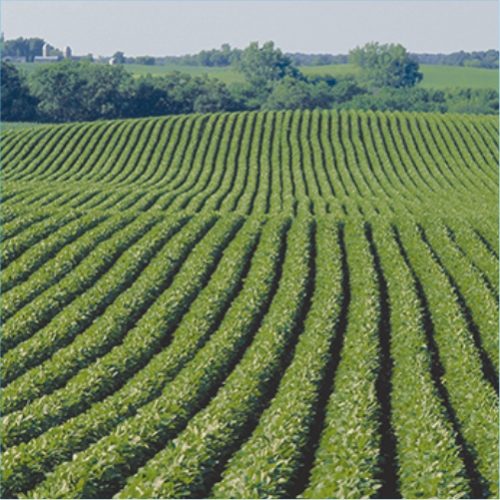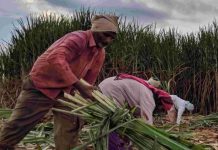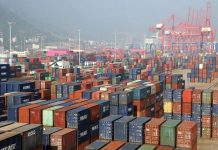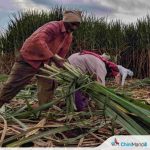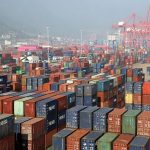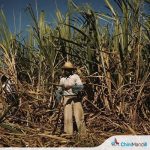To Listen To This News Click On A Button Below To The Image.
New Delhi, Feb 16 (PTI) After reading theoretical ecologist Robert Ulanowicz and distilling his message to relate it to the agrarian crisis in India, young author Yaashree Himatsingka believes a change in how we look at ecosystems and transitioning to more sustainable policies is the way to solve farmer worries.
In her book “Unlocking Ecosystems – Understanding Nature’s Hidden Networks”, the Mumbai high school student argues that the ecosystem is undergoing “irreversible long-term damage” through the “use of large amounts of pesticides, insecticides and fertilizers to maximize the output in modern industrial agriculture”.
She suggests that policy-makers need to give equal importance to “short-term issues and long-term sustainability”.
“If we can make ourselves aware of how natural systems operate, we’ll be able to make small changes within our own domains to enable agricultural sustainability. Indian policymaking, in my opinion, prioritises short-term issues over long-term sustainability, when both should be equally considered,” Himatsingka told PTI.
This approach, she explained, largely stems from a lack of ecological awareness and the conventional perception of agricultural ecosystems as ‘food factories’ rather than as living, growing entities that naturally contain networks and mechanisms to ensure the cyclic flow of nutrients, maintain biodiversity and ensure sustainability.
A change in the way ecosystems are seen will help the transition from environmentally detrimental policies to more sustainable ones, she added.
The Class 12 student at Mumbai’s Cathedral and John Connon School said she was “provoked” into thinking about the agrarian crisis in the country after attending a presentation on the crisis unfolding in drought-stricken Marathwada.
“I remember seeing a picture of a mother and two young children sitting around a banyan tree. It was the same tree from which their father, an indebted farmer, had hanged himself the previous night. I remember feeling numb, shocked at my own ignorance,” she said.
From reading news to watching documentaries, taking online courses and reading books like “Feed or Feedback” by Duncan Brown and “A Third Window” by Robert Ulanowicz, Himatsingka now plans to get “actively involved in policymaking” to be able to tackle the agrarian crisis.
“According to a study by professor G L Parvathamma of Bangalore University, over 290,000 farmers have committed suicide in India from 1995 to 2013. Vidarbha, in my state, Maharashtra, has the highest farmer-suicide rate, 4,000 annually, 10 plus every day,” she said.
This issue, Himatsingka said, has complex causes, including (but not limited to) land fragmentation, unsustainable cropping techniques, declining biodiversity, the intensive use of agrochemicals, soil degradation and a cycle of indebtedness.
“I hope to be able to do my part in figuring out the best way to tackle each one of these,” the 18-year old author said.
What is the solution to the issues at hand?
Himatsingka believes the tradition of ‘monoculture’ in the Indian agricultural landscape needs to be balanced with diverse crops to help ecosystems adapt to random changes in the environment.
Monoculture is the agricultural practice of growing genetically similar, nearly identical plants, over large areas, year after year, a practice commonly used in modern industrial agriculture.
“The argument is that monocultures produce a lot more food because the plant we’re growing doesn’t have to compete with other species around it for resources, since it is the only plant being grown. However, when these conditions change, they are at a much greater risk than diverse ecosystems.
“This is because diverse ecosystems have the ability to adapt to change. Diverse crops can survive better in environments in which conditions fluctuate, because some are vulnerable to certain changes and others are not,” she writes in her book, which was launched last year.
She added that pathogens (bacteria, viruses and microorganisms) spread quickly and epidemics are more severe when the host plants are genetically uniform.
This is because pathogens encounter less resistance in monocultures than they would in diverse ecosystems.
“If we continue to aim for greater and greater efficiency, our ecosystems will collapse when unpredictable changes in climate, plant disease or pest outbreak strike them.
“The only way in which we can sustainably cultivate crops without damaging ecosystems is by reducing use of harmful insecticides, pesticides and fertilizers, and maintaining the right balance between efficiency and diversity,” she said.
Download Our ChiniMandi News App : http://bit.ly/ChiniMandiApp

